Directory
- Share
Gregor Feierabend
- Scholar
- Germany
- 2023 MPhil Advanced Computer Science
- Trinity Hall
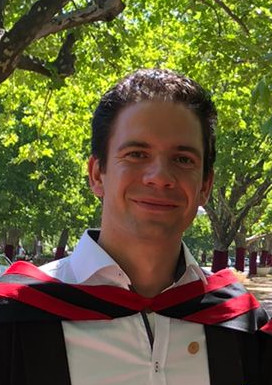
Gregor Feierabend
- Scholar
- Germany
- 2023 MPhil Advanced Computer Science
- Trinity Hall
At Stellenbosch University in South Africa, I studied mathematics and computer science. At the University of Cambridge, I will pursue an MPhil in Advanced Computer Science. My interest in these subjects is rooted in the enjoyment of acquiring a deep and thorough understanding of a topic at hand. This I regard as a process that heavily relies on the development of a suitable formal language. Formal languages are omnipresent in computer science and are fundamental in the development of, for example, network protocols or programming languages. My current research interests lie in the applications of category theory and mathematical logic to formal language theory. I am also interested in the related area of proof assistants and their use in building provably correct software. The abstract nature of these topics leads to potential applications in a wide range of subjects. Thus, I hope to be an inspiration to and equally be inspired by the multidisciplinary and diverse Gates Cambridge community.
Previous Education
University of Stellenbosch Mathematics 2022
University of Stellenbosch Mathematics 2021
Merve Fejzula
- Alumni
- United States
- 2015 PhD History
- Trinity Hall
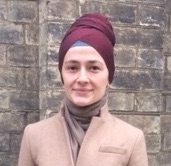
Merve Fejzula
- Alumni
- United States
- 2015 PhD History
- Trinity Hall
Merve is a PhD candidate in History funded by the Gates Cambridge Trust and an intellectual and political historian of Africa and its diaspora. Her thesis, ‘Black Cultural Citizenship between State and Nation, 1947-66’, examines the unknown history of the Anglophone dissemination of negritude, the movement for race consciousness long associated with the Francophone world. By attending to negritude’s reception in Nigeria and the United States, I re-frame the history of negritude as a contest over competing forms of “black cultural citizenship,” a form of political belonging which indexed ties to Africa and its diaspora. By focusing on the meeting of Francophone and Anglophone Africa and its diaspora, as well as connecting African intellectual history debates to black internationalist ones, this project ultimately examines the way in which African and diasporic subjects negotiated multiple fields of political belonging: national and post-imperial citizenship managed by the state and an international ‘black cultural citizenship’ that invoked more complex territorial associations..Her research interests include African intellectual and political history, imperial history, and black internationalism. At the undergraduate level, she has taught modern African history, World history, and US history as well as historical method seminars on race, and at the postgraduate level has given seminars on anti-colonial movements in African Studies..Merve completed an MPhil in Historical Studies at the University of Cambridge in 2015, and a double major in history and English, with a minor in philosophy, at Rutgers University’s Newark campus in 2011. Prior to postgraduate study, she served as Program Coordinator of the Diversity Research Center at Rutgers from 2011-13.
Previous Education
Rutgers University
University of Cambridge
Lila Gaudêncio
- Scholar
- Brazil, Uruguay
- 2021 PhD Latin American Studies
- Trinity Hall
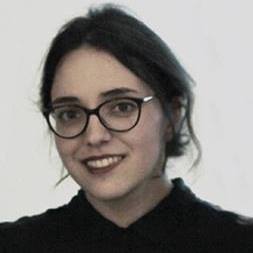
Lila Gaudêncio
- Scholar
- Brazil, Uruguay
- 2021 PhD Latin American Studies
- Trinity Hall
As an undergraduate studying Visual Arts at the Federal University of Minas Gerais, I developed an interest in the relationship between politics and aesthetics, and how it visually manifests in symbolic places of power such as money. I started researching "oficial" banknotes, when I came across community currencies and became immediately fascinated by them – resulting in my masters dissertation. Brazil has over 100 different community banks, and is a unique case study in the subject, as social money has been a public policy for the development of low-income territories since 2003. Due to COVID-19, the capacity and potential of these local self-managed organizations have shown to be efficient in protecting communities through a cycle of solidarity that strengthens them – and their economy – as a whole. Therefore, for my PhD in Latin American Studies at Cambridge, I intend to expand my previous work, further understanding how these currencies impact their communities by shifting ideas of value, power, democracy and citizenship. More so, I aim to identify what methodologies ensure long-term success, in order to help expand this plural, horizontal and collaborative network that has formed in favor of a more just economic system.
Previous Education
Universidade Federal de Minas Gerais Arts 2019
Universidade Federal de Minas Gerais Visual Arts 2016
Allison Giannaros
- Alumni
- United States
- 2015 MPhil Engineerng for Sustainable Dev
- Trinity Hall
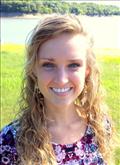
Allison Giannaros
- Alumni
- United States
- 2015 MPhil Engineerng for Sustainable Dev
- Trinity Hall
I am from the Midwest, and have strong family and community ties to rural agriculture and wildlife conservation. The intellectual and personal connections I’ve made within and between my disciplines of industrial engineering, global health studies, and business administration at the University of Iowa have intensified my passion to help people and the environment thrive. My research on alternative cooking technologies in rural India and Cameroon, as well as a spectrum of experiences working as an engineer in the public and private sectors, has made me both more aware of the complexity of my chosen field of sustainable development AND eager to strengthen my own understanding of the scientific, behavioral, and economic forces which shape it. I completed the MPhil in Engineering for Sustainable Development to learn how I can integrate the principles and practices of sustainable development into my work as an engineer. I am thankful to be a Gates Cambridge Scholar alum, and grateful to keep learning from shared lessons and experiences with fellow scholars around the world.
Previous Education
The University of Iowa
Daniel Greenfield
- Alumni
- Australia
- 2005 PhD Computer Science
- Trinity Hall

Daniel Greenfield
- Alumni
- Australia
- 2005 PhD Computer Science
- Trinity Hall
(Update: I am now CEO of PetaGene. We tackle challenges in Personalised Medicine, making unwieldy genomic data from sequencers smaller, better and faster, to reduce costs, improve analysis and speed up collaboration.) My PhD research developed models for the physical locality of networks. Locality is fundamentally important for the performance of future computer systems with thousands of processors on a chip, but not much is fundamentally known about it. What is very exciting is that in collaborations with the Brain Mapping Institute, we've also found the theory can explain some mysteries of mammalian neuronal networks and we believe it may help to explain other natural phenomena where physical position matters such as social, epidemic, financial, and traffic networks.
Douglas Guilfoyle
- Alumni
- Australia
- 2004 PhD Legal Studies
- Trinity Hall

Douglas Guilfoyle
- Alumni
- Australia
- 2004 PhD Legal Studies
- Trinity Hall
I worked as a commercial lawyer in Sydney and as an associate (or clerk) to two Australian federal judges (one in Sydney, one in Melbourne) before coming to Cambridge. My PhD research at Cambridge was on the interception (stopping, searching and seizing) of shipping in order to regulate such activities as drug smuggling, WMD trafficking and the management of fisheries. Since leaving Cambridge I have work as a Lecturer and Reader in Law at University College London. From April 2015 I will be an Associate Professor at the Faculty of Law, Monash University, Melbourne.
Jared Holley
- Alumni
- Canada
- 2009 PhD Social and Political Sciences
- Trinity Hall
Jared Holley
- Alumni
- Canada
- 2009 PhD Social and Political Sciences
- Trinity Hall
My PhD focuses on the reception of classical atomist philosophy in eighteenth-century France and its deployment in philosophical debates concerning the nature of politics and citizenship. I am particularly interested in the impact of Epicurean and Lucretian themes on the political thought of Jean-Jacques Rousseau.
Jennifer Ifft
- Alumni
- United States
- 2002 MPhil Land Economy
- Trinity Hall

Jennifer Ifft
- Alumni
- United States
- 2002 MPhil Land Economy
- Trinity Hall
Jennifer Ifft is the Flinchbaugh Agricultural Policy Chair, Associate Professor, and Extension Specialist in Agricultural Policy at Kansas State University. She has an integrated research and extension program that covers policy and regulatory issues that affect the viability of U.S. and Kansas agriculture. Her current projects are in the areas of nontraditional finance, crop insurance, farmland markets and farm labor. She has published on how farm programs and regulations are capitalized into farmland values, farmland value determinants and measurement, farm labor and management, and crop insurance and farm debt. She also regularly publishes in the farm press and works with farm sector policymakers and stakeholders. Before coming to Kansas State University, she was an assistant professor at the Cornell University Charles H. Dyson School of Applied Economics and Management and worked in the Farm Economy Branch of the USDA Economic Research Service. She has a PhD from the University of California - Berkeley, an MPhil from the University of Cambridge and a BS from the University of Illinois at Urbana-Champaign. She grew up on her family’s farm in central Illinois.
Previous Education
University of Illinois at Urbana-Champaign B.S. International Resource and Consumer Econom. 2002
Links
https://www.ageconomics.k-state.edu/directory/faculty_directory/ifft/index.html
https://www.linkedin.com/in/jenniferifft
Jannis Jakobs
- Scholar
- Germany
- 2023 PhD Anglo-Saxon, Norse and Celtic
- Trinity Hall

Jannis Jakobs
- Scholar
- Germany
- 2023 PhD Anglo-Saxon, Norse and Celtic
- Trinity Hall
Growing up in small-town Germany I developed an interest in foreign languages because I associated with them cultures and places that lay beyond my reach, and which therefore seemed exotic and fascinating. I went on to study general linguistics at the University of Düsseldorf, where I first came into contact with Old English, the language of medieval England before and for some time after the Norman Conquest of 1066. As a consequence of this military and political event, French became an important language in England, replacing Old English - itself the language of previous migrants from the Continent - in some contexts and interacting with it in a way that changed both the French (dialects) of the invaders and the English (dialects) of the conquered. My PhD research is concerned with these linguistic influences, in particular with regard to the orthography and pronunciation of English.
Having been a tutor and student representative at my previous university, I am also passionate about widening access to education and fostering community among students.
Previous Education
Heinrich Heine University Dusseldorf Linguistics 2022
Heinrich Heine University Dusseldorf Linguistics 2019
Iwona Janicka
- Alumni
- Poland
- 2009 PhD French
- Trinity Hall
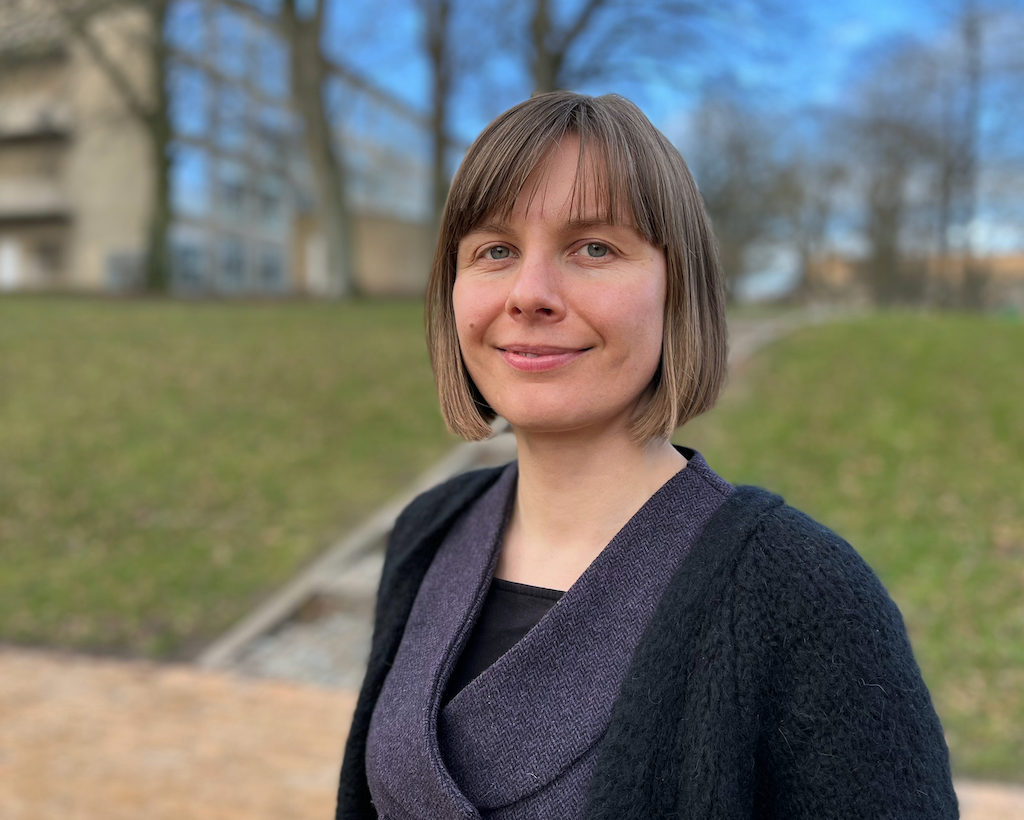
Iwona Janicka
- Alumni
- Poland
- 2009 PhD French
- Trinity Hall
I am Research Team Leader at the Center for Environmental and Technology Ethics - Prague (CETE-P) and Senior Researcher at the Institute of Philosophy of the Czech Academy of Sciences. I work in contemporary philosophy: environmental philosophy, political philosophy and feminist philosophy, with a particular focus on the questions of social transformation. After completing my PhD, I was British Academy Postdoctoral Fellow at the University of Warwick (UK), EU Maria Skłodowska-Curie Fellow at Aarhus Institute of Advanced Studies (Denmark) and Assistant Professor at Aarhus University (Denmark).
Links
https://cetep.eu
http://iwonajanicka.net
https://www.linkedin.com/in/iwona-janicka-993a4b309
Tala Jarjour
- Alumni
- Syrian Arab Republic
- 2005 PhD Music
- Trinity Hall
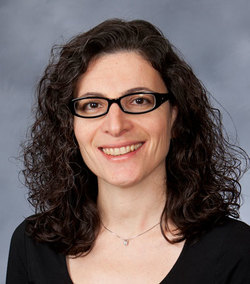
Tala Jarjour
- Alumni
- Syrian Arab Republic
- 2005 PhD Music
- Trinity Hall
Tala Jarjour is a scholar of music, religion and anthropology who studies the Middle East and the Arab world. She has a background in Ethnomusicology, Historical Musicology and violin Performance. She is particularly interested in intersections between politics, culture and religious musics in and from the region – especially Levantine traditions such as Christian and Sufi musics. Her research interests include arts and humanities higher education in the Middle East.
As a Gates Scholar and recipient of the Overseas Research Studentship Award Scheme, Tala wrote her PhD on Syriac chant in the Syrian city of Aleppo. Her past and current research examines emotion, aesthetics, modality, identity, minority and ethno-religiosity, society and performance, survival, cultural heritage, nation and power, peace and war studies, as well as migration and integration.
Dr Jarjour held Assistant Professor positions in music and anthropology at New York University Abu Dhabi and the University of Notre Dame where she was also Faculty Fellow of the Kroc Institute of the Medieval Institute, the Kellogg Institute for International Studies, and the Kroc Institute for International Peace Studies. Previous visiting faculty positions include Yale University’s Music Department and the University of Salzburg. Research positions include Yale University and the Excellence Initiative at the University of Tübingen. She is currently Associate Fellow of Pierson College at Yale and Visiting Research Fellow at King’s College London.
Dr Jarjour has worked with and consulted for a number of academic, nonprofit, as well as private and public sector entities in Europe, the United Kingdom, the United States, and the Middle East. Those include L’Arche, The Clerk’s, Al-Fanar, the Manchester International Festival, the University of Salzburg, and the Vienna Phonogrammarchiv of the Austrian Academy of Sciences. She has appeared on national and international media such as the BBC Radio 3 and CNN International, and has published articles in cultural media in the Arab world, such as Annahar and Assafir weeklies.
Her book Sense and Sadness, Syriac Chant in Aleppo was recently published with Oxford University Press. For a sample of Dr Jarjour’s academic writings, and contact information, see http://talajarjour.academia.edu/
Yinglin Ji
- Alumni
- China
- 2004 PhD English & Applied Linguistics
- Trinity Hall

Yinglin Ji
- Alumni
- China
- 2004 PhD English & Applied Linguistics
- Trinity Hall
My career goal is to become a linguist who can view language teaching from the perspective of a practitioner and meanwhile, a practitioner who would like to see language teaching through a research lens. My broader research interests cover cognitive linguistics, psycholinguistics, applied linguistics, neurolinguistics and cognitive science. My more specific interests within linguistics include motion event typology, language and thought, universal versus language-specific influences in L1 and L2 acquisition, and semantics-syntax interface in motion discourses. Over my career, I did extensive research in the field of linguistics and cognitive science with particular reference to the relationship between language and thought as reflected in the specific domain of spatial expressions and conceptualisation.
Previous Education
University of Cambridge PhD (MPhil in the first instance) in English and Applied Linguistics 2009
Peking University MA English linguistics 2003
Anna King
- Alumni
- United States
- 2002 PhD Criminology
- Trinity Hall

Anna King
- Alumni
- United States
- 2002 PhD Criminology
- Trinity Hall
My proposed course in Criminology is intended to contribute to a deeper understanding of public opinion towards crime and justice. In particular, I feel social reformers could benefit from understanding the psychological roots of punitiveness and forgiveness within the context of individual identity management.
Marie Kolkenbrock
- Alumni
- Germany
- 2010 PhD German
- Trinity Hall
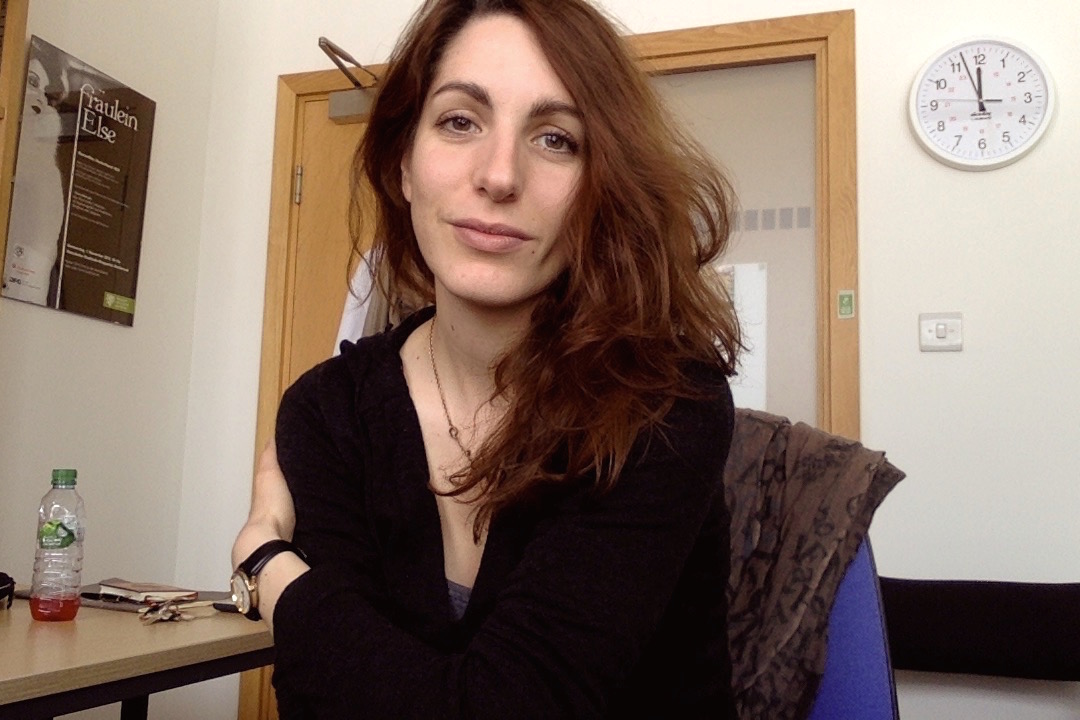
Marie Kolkenbrock
- Alumni
- Germany
- 2010 PhD German
- Trinity Hall
Marie Kolkenbrock is a Branco Weiss Fellow in the Department of German at KCL and a Trinity Hall Alumna (PhD 2014). Originally a scholar of Viennese Modernism, she has recently started to branch out into the fields of comparative literature, cultural theory and intellectual history, and is currently working on a cultural history of the concept ‘distance’ in the twentieth and twenty-first centuries. Her first monograph Stereotype and Destiny in Arthur Schnitzler’s Prose was published with Bloomsbury in 2018. She also is the co-editor of the forthcoming Special Issue of German Life & Letters: ‘Primary Rejections: On the Politics and Poetics of Refusal’, which is due to come out in January 2021.
Links
Don Laing
- Scholar-elect
- New Zealand
- 2024 PhD Paediatrics
- Trinity Hall

Don Laing
- Scholar-elect
- New Zealand
- 2024 PhD Paediatrics
- Trinity Hall
Originating from Waerenga, a small rural community in New Zealand, I was profoundly impacted by the advocacy and care provided by rural physicians to our most vulnerable populations. This experience, coupled with reflections during my paediatric rotations at medical school, fuelled my desire to enhance children's healthcare. I feel privileged to have been supervised by Dr Chris McKinlay, who taught me the power of curiosity and importance of addressing unanswered scientific questions. Together we designed and executed a trial exploring a novel therapy for transitional neonatal hypoglycaemia in the neonatal intensive care unit. Now embarking on a PhD in Paediatrics, I am eager to build upon this foundation under the mentorship of Dr Nazima Pathan in the paediatric intensive care. Our focus will be on better understanding the interplay between patients and the microbiome in the development of ventilator-associated pneumonia, a condition associated with significant mortality and morbidity. Through innovative research, we aim to pioneer early detection and intervention strategies to improve outcomes for paediatric patients. I am immensely grateful to Gates-Cambridge for their support in making this important project possible.
Previous Education
University of Auckland Medical Sciences 2021
University of Auckland Medicine and Surgery 2021
Anthony Lamb
- Alumni
- Australia
- 2012 PhD Zoology
- Trinity Hall

Anthony Lamb
- Alumni
- Australia
- 2012 PhD Zoology
- Trinity Hall
I have bachelor degrees in physics, mathematics and engineering and some experience working in the finance sector. I hope that this varied background will prove useful at Cambridge where I am taking a PhD in conservation science, with a focus on the environmental impact of farming. With global demand for food forecast to double by 2050, it is important to consider both the environmental and social impacts of increasing agricultural production. This is particularly the case in developing countries, where environmental degradation can impose a significant social cost. My research therefore focuses on ways to meet increasing food demand at least cost to the environment.
Andrew Lang
- Alumni
- Australia
- 2001 PhD Legal Studies
- Trinity Hall

Andrew Lang
- Alumni
- Australia
- 2001 PhD Legal Studies
- Trinity Hall
Joanna Lawrence
- Alumni
- United States
- 2016 PhD Archaeology
- Trinity Hall
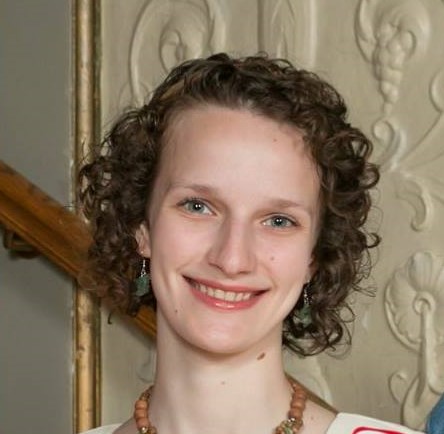
Joanna Lawrence
- Alumni
- United States
- 2016 PhD Archaeology
- Trinity Hall
I developed an interest in archaeology as an undergraduate student at the University of Wisconsin. After I withdrew from my former career as a ballet dancer, my passion to create physical expressions of myself found satisfaction in uncovering the memories of selves expressed in the physical objects they left behind.As an archaeologist, I am interested in the everyday experiences of Bronze Age people in northern Europe. In my career, I plan to explore their personal and community identities, settlements and households, social organizations, engagements with material culture, and ideologies of gender and sexuality.My PhD research examines human conceptualizations of non-human animals through the Bronze Age rock carvings from southern Scandinavia. Some of the broader questions I hope to answer include whether animals were viewed as having agency in the past, how animals fit within the networks of Bronze Age society, how people were perceived as being similar to and different from animals, whether some animals were special kind of beings, and what the implications of my research are for human-animal interactions and relationships in practice in Bronze Age Sweden. Ideally, my project will provide a foundation for further works thinking about society in practice through prehistoric art, and about the roles of animals in prehistory.I am thrilled for the opportunity to share my passion for archaeology with academic and public audiences as a Gates Cambridge Scholar, and to continue my graduate education at the University of Cambridge. I hope to inspire in others an appreciation for the beautiful diversity of humanity throughout the millennia. I am honored to also be a 2013 Beinecke Scholar.
Previous Education
University of Wisconsin Madison
University of Cambridge








